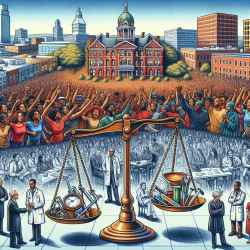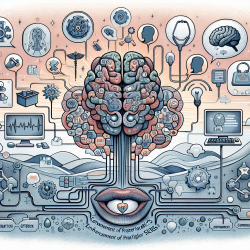The historical events surrounding the Newark Uprising of 1967 and the subsequent Newark Agreements present a rich tapestry of lessons for modern healthcare practitioners. These events underscore the importance of community engagement and historical awareness in shaping effective healthcare policies. As practitioners, understanding these lessons can significantly enhance your ability to deliver equitable and effective healthcare services.
The Historical Context
The Newark Uprising was a response to decades of systemic racism and socioeconomic injustices faced by the city's African American community. The 1968 Newark Agreements were a groundbreaking social contract between the state, business leaders, and the people of Newark. These agreements aimed to ensure that the newly established Rutgers New Jersey Medical School would serve as a cornerstone for community health and employment.
Key Takeaways for Practitioners
- Community Collaboration: The success of the Newark Agreements highlights the power of involving community voices in healthcare decision-making. Practitioners should seek to engage with local communities to understand their unique needs and challenges.
- Historical Awareness: Understanding the historical context of a community can inform more effective public health interventions. Practitioners should consider how past injustices continue to impact current health disparities.
- Sustainable Partnerships: Building long-term partnerships with community organizations can help sustain public health initiatives. This approach ensures that healthcare services remain relevant and accessible to those who need them most.
The Path Forward
The lessons from Newark's history are not just relics of the past but are highly applicable in today's context of addressing structural racism and health inequities. Practitioners are encouraged to delve deeper into this history to better inform their practice. By doing so, they can contribute to creating a more equitable healthcare system that genuinely serves all members of society.
If you're interested in exploring these themes further, consider reading the original research paper: Broken Promises to the People of Newark: A Historical Review of the Newark Uprising, the Newark Agreements, and Rutgers New Jersey Medical School’s Commitments to Newark.










